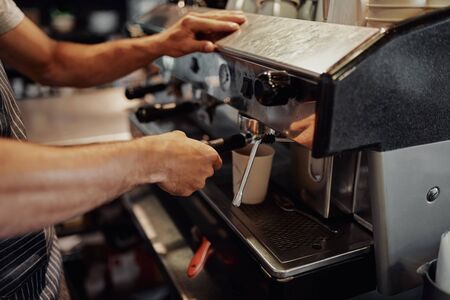1. The British Coffee Revolution
Once upon a time, the heart of every British home beat to the gentle whistle of a kettle, signalling that it was time for a comforting cup of tea. But as I’ve watched my own family’s habits change over the years, I can’t help but notice a delightful shift happening all across Britain. Our love affair with coffee has blossomed—evolving from instant granules hurriedly stirred in the morning to lovingly brewed artisan cups savoured throughout the day. The classic “cuppa” still holds a special place in our hearts, but more and more families like mine are reaching for locally roasted coffee beans and experimenting with everything from cafetieres to espresso makers. This isn’t just about taste, either; it’s about making mindful choices for our loved ones and the planet. As parents, we want what’s best for our children’s future, and supporting local roasters who prioritise sustainability feels like a meaningful step in the right direction. The British coffee revolution is here, and it’s warming homes—and hearts—across the country.
Understanding Sustainability in Coffee
As a mum who loves her morning brew, I’ve come to realise that sustainability isn’t just a buzzword—it’s a heartfelt commitment to making sure our daily cup of coffee supports both people and planet. For many Britons, understanding what sustainability means in the world of coffee is the first step towards making kinder choices for our communities and the environment. So, let’s take a gentle stroll through this important topic together.
What Does Sustainability Mean in Coffee?
Sustainability in coffee covers everything from how beans are grown and harvested to how they’re roasted and delivered to your doorstep. It’s about ensuring fair wages for farmers, protecting natural habitats, reducing carbon footprints, and supporting local businesses right here in the UK. When we choose sustainable coffee, we’re not only enjoying a delicious brew—we’re also nurturing the world our children will inherit.
Why Should Britons Care?
Here in Britain, we cherish our green spaces, community spirit, and sense of responsibility towards future generations. By supporting local roasters who prioritise ethical sourcing and eco-friendly practices, we help build stronger local economies and reduce the environmental impact associated with shipping beans from far-off places. It’s a choice that reflects our values as caring parents and neighbours.
Key Elements of Sustainable Coffee
| Aspect | What it Means |
|---|---|
| Ethical Sourcing | Paying farmers fairly and ensuring safe working conditions |
| Environmental Care | Protecting wildlife, conserving water, and reducing waste |
| Community Support | Investing in local economies and building relationships with growers |
By choosing sustainable coffee from local UK roasters, we’re making small but meaningful changes—one cup at a time. It’s a simple way to show love for our families, our communities, and the beautiful world around us.

3. Local Roasters: The Heart of Ethical Coffee
As a mum who cares deeply about what goes into our cups—and the world we’re handing down to our little ones—it warms my heart to see local coffee roasters blossoming across Britain. These community-based gems are truly at the heart of ethical coffee, making it easier for eco-conscious families like ours to enjoy a delicious brew with a clear conscience. Unlike big commercial chains, local roasters often develop strong, direct relationships with smallholder farmers, ensuring that every bean is sourced fairly and sustainably. They focus on transparent supply chains, so you know exactly where your morning pick-me-up comes from and how it was grown.
What’s extra lovely is that these roasters aren’t just about profit—they’re passionate about supporting both farmers abroad and our neighbourhoods at home. Many run educational workshops, host tasting events, and even support local charities, creating a ripple effect of goodness right through our communities. You’ll often find them sourcing beans with certifications like Fairtrade or Rainforest Alliance, or even going above and beyond by choosing beans from farms practising regenerative agriculture. By opting for these ethically-minded businesses, we’re not only enjoying richer flavours but also nurturing a more sustainable future for our children.
For families keen on reducing their carbon footprint, local roasters offer another bonus: they usually roast in smaller batches, cutting down on food waste and unnecessary transportation. Plus, many encourage customers to bring reusable cups or containers, helping us all do our bit to reduce single-use plastics. Next time you fancy a cuppa, consider popping into your local roaster—you’ll be welcomed like family and leave knowing you’ve made a choice that’s good for people and planet alike.
4. From Crop to Cup: The Journey Matters
As a mum who cares deeply about the world we’ll leave to our children, I’ve come to realise just how important it is to know what’s in our daily cup of coffee. One of the most beautiful things about choosing coffee from local roasters here in the UK is the transparency they offer—from the origin of the beans all the way to that comforting brew in your favourite mug. Traceability isn’t just a trendy buzzword; it means you can actually find out which farm grew your beans and how they were processed, roasted, and delivered right to your local high street or doorstep. This level of openness not only reassures us mums (and dads!) that we’re making ethical choices, but also strengthens trust between consumers, roasters, and growers.
Supporting traceable, locally roasted coffee has some unique advantages for both the grower and our local economy. When you choose a bag of locally roasted beans, you’re often supporting small family farms abroad as well as independent British businesses at home. Here’s a little table to show how this lovely cycle works:
| Stage | Benefit to Growers | Benefit to Local Economy |
|---|---|---|
| Farming & Harvesting | Fair pay & better working conditions thanks to direct trade relationships | Encourages ethical sourcing and responsible partnerships |
| Roasting Locally | Freshness preserved; unique flavours highlighted by skilled British roasters | Keeps jobs and skills within our community, supporting local families |
| Selling & Enjoying | Greater recognition for farmers’ hard work and quality beans | Money spent stays in Britain—helping small shops and cafés thrive |
This transparent journey from crop to cup gives us more than just peace of mind—it lets us become part of a story that values people and planet over profit. When we gather around the kitchen table with friends or pop out for a cuppa after the school run, we’re not just sharing good times—we’re investing in a better future for everyone involved. Now that’s something worth raising your mug for!
5. Simple Steps for Sustainable Sipping at Home
As a mum who cares deeply about our planet and the future for our little ones, I’ve found that making small changes in our daily coffee rituals can have a big impact. If you’re keen to make your cuppa more eco-friendly, here are some warm and practical tips—straight from my kitchen to yours!
Choose Smarter Packaging
One of the easiest ways to make your morning brew greener is by paying attention to packaging. Many local British roasters are now offering coffee in recyclable or compostable bags, which means less waste heading to landfill. When you’re picking up your next bag, look out for paper-based or plant-based materials and always check for clear recycling instructions. It’s a simple swap that adds up over time.
Compost Your Coffee Grounds
Don’t toss those used grounds! Coffee grounds are brilliant for the garden—just sprinkle them on your compost heap or directly around plants as a natural fertiliser. Not only does this reduce waste, but it also nourishes your herbs and flowers, making it a win-win for both your home and the environment.
Support Local Businesses—One Cup at a Time
There’s something heartwarming about knowing your morning cup supports a roastery just down the road. By buying from local British roasters, you help reduce food miles and carbon footprint, while also investing in your community. Many small businesses put real care into sourcing ethical beans and prioritising sustainability throughout their process, so every sip truly makes a difference.
With these simple steps—choosing smarter packaging, composting coffee grounds, and supporting local businesses—you’ll find that sustainable sipping is easy to weave into everyday life. As mums looking out for our families’ futures, every small action counts, and together we can help create a brighter, greener Britain—one delicious cup at a time.
6. Where to Find Local Roasters Across the UK
If you’re eager to make your daily coffee more sustainable and support local communities, you might be wondering where to begin your journey with local roasters. As a busy mum myself, I know how precious time is—so here’s a friendly guide to help you discover and choose ethical coffee options close to home.
Start With Your High Street and Farmers’ Markets
Many towns across the UK are home to independent coffee shops and small-batch roasters right on the high street or at weekly farmers’ markets. These spots often showcase beans roasted just miles away, and staff are always happy to chat about their sourcing practices. Pop in on your school run or Saturday stroll—you’ll be surprised at what you find just around the corner!
Explore Online Directories
Websites like Indie Coffee Guide, Coffee Roasters Directory UK, and even local Facebook groups can point you toward hidden gems in your area. Search by postcode for convenience, making it easy for families to plan a quick visit or place an order online for home delivery—ideal for when you’ve got little ones in tow.
Look Out for Ethical Certifications
When browsing online or in-store, check if your local roaster uses ethically sourced beans—look for certifications like Fairtrade, Rainforest Alliance, or information about direct trade relationships with farmers. Many UK roasters proudly display these details as part of their commitment to sustainability.
Community Recommendations Matter
Ask fellow parents at school pick-up, neighbours, or local social media groups for their favourite roasters. Word-of-mouth recommendations often lead to discovering passionate small businesses that may not have big marketing budgets but put heaps of love into every cup.
Try Subscription Services
If you’re short on time (aren’t we all?), consider a subscription box from a UK-based service that curates selections from independent British roasters. It’s a lovely way to sample different coffees and support multiple local businesses—all delivered straight to your door.
Making the switch to local roasters isn’t just about great-tasting coffee—it’s about teaching our children the value of community and caring for our planet, one delicious brew at a time. Every cup truly does make a difference!

